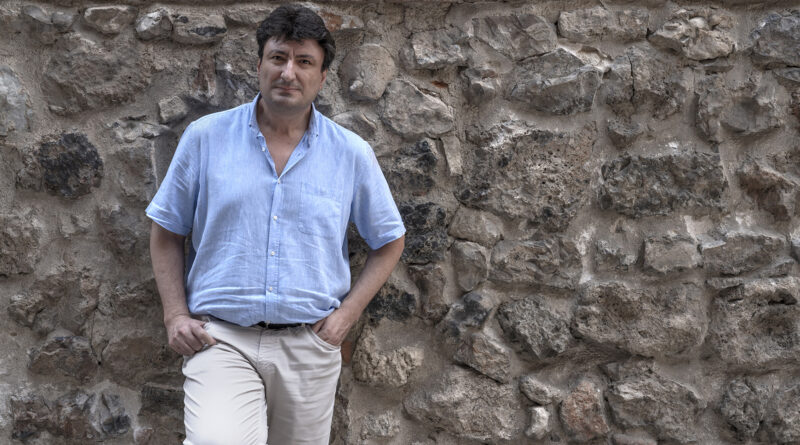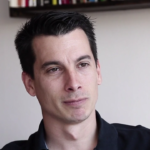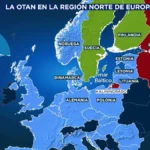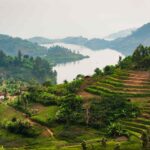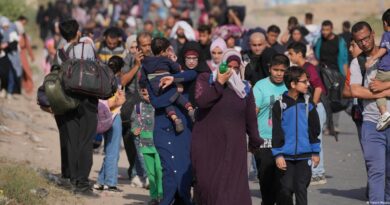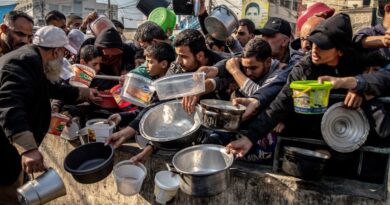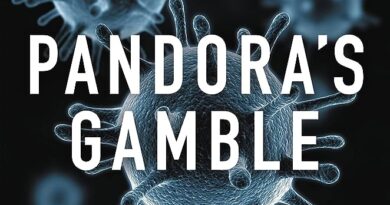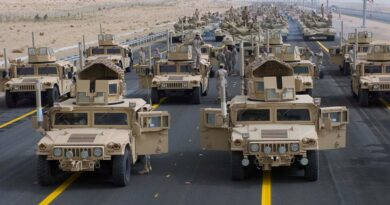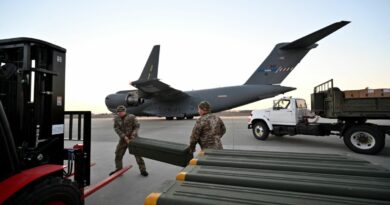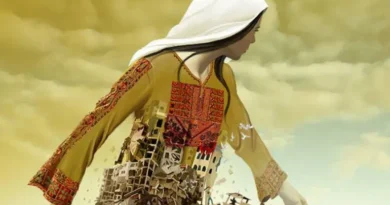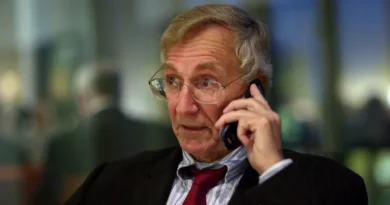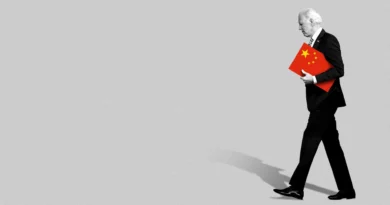Mario Amorós: the implementation of the Allende experience was unacceptable for the US
JAYRO SANCHEZ
Mario Amorós is a Spanish journalist and historian specialized in the history of Chile. He has written numerous works about this country, including internationally renowned biographies on Salvador Allende, Miguel Enríquez, Augusto Pinochet, Pablo Neruda and Víctor Jara. The first of them has been republished by Captain Swing on the occasion of the 50th anniversary of the coup d'état that ended the Government of the socialist leader. Amorós guides us on a brief tour of the life history of the legendary Chilean politician.
In your biography, you describe Allende as a chameleon-like character. He was born into a wealthy family, but was one of the great defenders of the working class in the 20th century. And he graduated in Medicine from the University of Chile, although he was the outstanding student of an anarchist worker who emigrated to Latin America... How are these paradoxes explained?
I would say that they are, rather, life circumstances. Like many other revolutionaries, he was born into a bourgeois family. However, his paternal relatives stood out for having a fairly progressive ideology... In fact, his grandfather Ramón de el, who was an important civic-military leader of the country in the 19th century, was known for his political radicalism. he.
By chance, when he was still a boy of 14 or 15 years old living in Valparaíso, the future president met the anarchist carpenter Juan Demarchi. I do not believe that this meeting decisively determined his subsequent career, but it is true that, for him, it represented a first approach to the ideas and history of the left.
Demarchi spoke to him about the workers' struggle and the importance of unions. He also lent her some books and taught her how to play chess. From my point of view, the fact that he made one of his first contacts with the world of politics through an anarchist has some importance, since that warned him against any kind of dogmatism.
In 1926, he decided to study Medicine at the University of Chile. A year later, the populist Carlos Ibáñez del Campo established a dictatorship against which he would fight as a student leader. After 5 years, between 1931 and 1932, this authoritarian regime was overthrown and replaced by the brief Socialist Republic of Chile. A homonymous party would be created in 1933, and Allende would join it, making, without knowing it, one of the most transcendental decisions of his life.
The project he proposed was one of the most prominent within the field of the left in the Cold War (1947-1991), since it proposed carrying out a transformation of the Chilean system towards socialism through constitutional and peaceful means. How did you come up with this idea?
In the 1940s, he was elected general secretary of the Socialist Party of Chile. Since then, he began to think about the center-left alliance that had allowed Pedro David de Cerda to win the presidency of the Republic in 1938. And, from this specific situation, he understood that the formation of a great coalition of the Chilean left could force the creation of an alternative power.
The initial fruits of his strategy came to fruition in the early 1950s with his first attempt to become head of state. It is true that he only obtained 5% of the votes and that he came in last place, but, in 1958, he became the second most voted candidate. And 12 years later, the persistence of the Socialist Party and the Communist Party of Chile in favor of this policy of unity would allow Allende to become president.
To carry out this systemic transformation, he followed a third way located between the paths of bourgeois liberal democracy and armed revolution. He got it?
In my opinion, yes. He understood that the imposition of violent tactics was not going to work in the Chile of the 1950s and 1960s. On the contrary, he assured that the attendance of a large popular movement of a political, social and cultural nature in the new Chilean elections could. be useful.
And his thesis proved correct, since the National Congress elected him president with the support of the Christian Democrats. From that position, he undertook the second part of his plan, which consisted of building a socialist State model based on the political and economic institutions in force in the country.
ALLENDE ALWAYS VALUED THE WILLINGNESS OF THE SOVIETS TO HELP THE PEOPLES WHO FIGHTING FOR THEIR NATIONAL EMANCIPATION
Allende's position regarding capitalism was very clear, but he also criticized the great enemy of the "free world": the Soviet Union. Even so, he still considered himself a revolutionary…
From my point of view, it was. He united the Chilean left for more than 20 years under the framework of a common project whose positions became increasingly radical with the passage of time. His program sought to establish such beneficial measures as the nationalization of industrial monopolies, the nationalization of banking or the deepening of agrarian reform.
Regarding his vision of the international panorama, he knew what the USSR was. In 1948, he expressed his distancing from some of the most important aspects of the Soviet system. Despite this, he traveled repeatedly to his territory, and always valued his willingness to help people who were fighting for their national emancipation, such as the Vietnamese or the Cubans.
In any case, these ideas did not prevent him from condemning events such as the invasions of Hungary (1956) or Czechoslovakia (1968)…
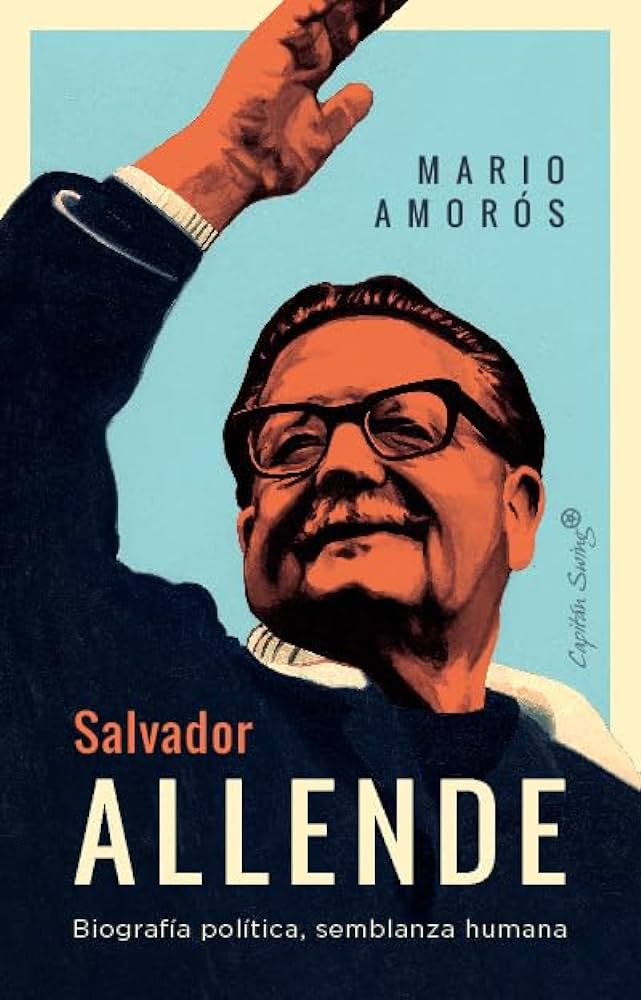
Are the accusations that have been leveled against him from certain sectors of the left calling him a reformist and social democrat acceptable?
It is evident that the Popular Unity coalition and President Allende can be criticized. For example, his public discourse on the supposed constitutional integrity of the Chilean Armed Forces in the Latin American military framework of the time was proven wrong. And the internal struggles among the left itself only weakened the Government and facilitated the work of the coup plotters who wanted to overthrow it. I suppose you can even call him a reformist or social democrat, although I don't share those criticisms.
You say that one of the leader's great achievements was to bring together the various leftist political parties of his country in a great coalition that allowed the formation of a truly progressive Government. How did he get it?
Through a very long process that began in 1951 and was marked by an important understanding between Allende and the Communist Party of Chile (PCCh). The latter was monolithic in the organizational and ideological sense, but he was very loyal to the president because he understood that he was the one who best represented the popular movement.
The other supporter of the coalition was the Socialist Party of Chile (PS), which was very heterogeneous and was very divided until its reunification in 1956. It is true that, in 1970, it had a hard time supporting Allende's candidacy. However, in the end he did it.
From all this it is inferred that the two main parties of the Chilean left understood that, beyond their differences in the field of national politics, they could only obtain an electoral victory if they ran together for the presidential elections and if their representative was Allende, since he was the only leader who attracted great support among the different leftist factions due to his mix of pragmatism and political intelligence.
How would you describe the president's relationships with other Latin American revolutionary leaders?
I would say that they were always characterized by camaraderie. Specifically, the two best-known leaders of the left in the region were Allende himself and Fidel Castro. The 1960s were the time of the Cuban Revolution (1959), and this event was an obvious focus of attraction for a large part of the American progressive movements.
The leader of the Unidad Popular traveled to Cuba every year between 1959 and 1969. In fact, he always said that, if he had been born in this country, he would have been with Fidel and his fellow revolutionaries.
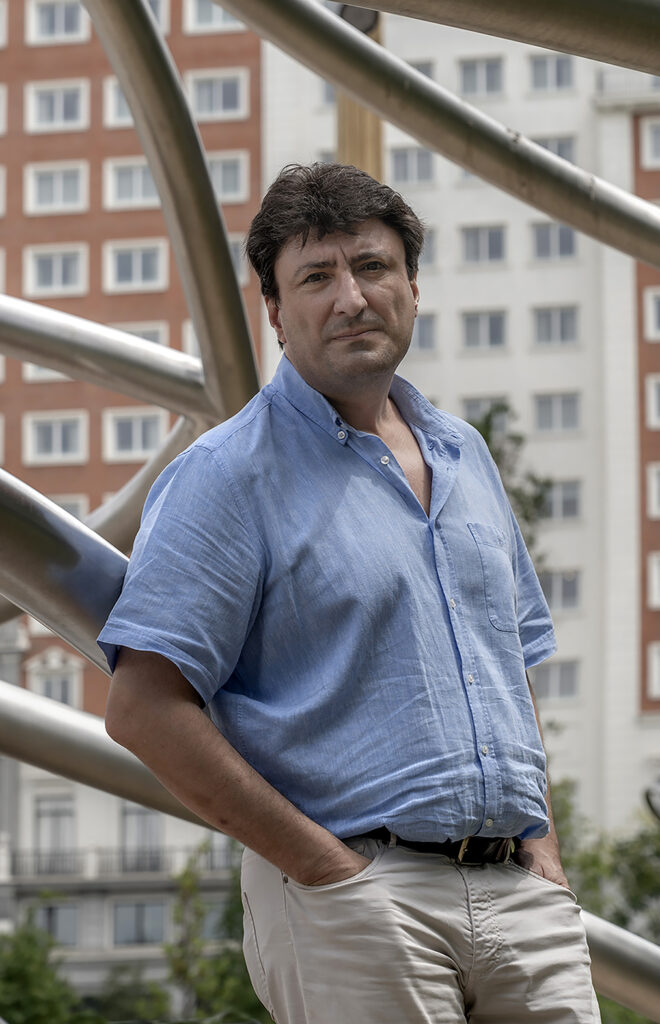
For his part, Castro visited Chile for four weeks in 1971. He recognized that the process initiated by his counterpart was unusual, although he admitted that he could not stop describing it as revolutionary.
Furthermore, after the 1973 coup d'état, Cuba was one of the most supportive countries in the fight against the Pinochet dictatorship and in favor of the Chilean exiles.
Allende also maintained relations with former Brazilian president João Goulart and with guerrilla leader Ernesto That Guevara…
Yes. He met the first one in Montevideo in December 1964. The Chilean president went there to give a conference, and Goulart had gone into exile in the Uruguayan capital after the military uprising organized against him in April was successful.
On the other hand, he began to interact with Che in Cuba in 1959. When he was assassinated 8 years later, the president paid tribute to him in a speech before the Senate. He also helped the last 3 survivors of his "Bolivian" guerrilla expedition return to Havana.
Decades before holding the presidency, the Chilean socialist was already known for supporting the Republican side during the Spanish Civil War (1936-1939) and for rejecting the violence carried out by the Nazi Party in Germany in the first decades of the XNUMXth century. Was he a very outwardly active ruler?
Clear. It is curious, because, in general, Chile has always been a country that tends to isolate itself from what is happening in the world. And, despite this, Allende worried about traveling abroad. I have no evidence that he was in Western Europe or the US, but I do know that he went to: Berlin, Yugoslavia, Poland, the Soviet Union, Cambodia, North Korea, Vietnam and China.
I guess that shows that he was aware of what was happening in the rest of the planet. However, the international framework of the Cold War greatly conditioned his visits, like those of all Latin American leaders.
IN 1972, THE ECONOMIC SITUATION OF CHILE HAD BECOME VERY DIFFICULT
Another of the most debated questions about Allendeism is the effectiveness of its economic policies. Some say that they were exemplary and others that they were a failure. How would you rate them?
The data show that they had very positive results during their first year of application, although it is true that some of their measures encouraged inflation. Like any government, Allende's made mistakes in this matter.
Furthermore, the reorganization of the opposition prevented some program proposals from being carried out, such as the transfer of large landholdings to peasant agricultural cooperatives.
The lockouts of 1972 caused a turning point and forced important attempts at rectification because the country's economic situation had become very difficult. This was demonstrated by the arrival to power of the communist Orlando Millas, who replaced Pedro Vuskovic as Minister of Economy that same winter.
In the 1970s, the Chilean regime was famous throughout the world for its political stability. But the assassination of the commander in chief of his Army, General René Schneider, seemed to start an uncontrollable spiral of violence in the country. To what extent did his death influence the development of the subsequent coup d'état of 1973?
Not much. The attack represented the last attempt to putsch that the most radical sectors of the Chilean right carried out to prevent Allende from becoming president of the nation. Still, Congress voted in favor of his appointment two days later, and the PS general secretary came to power with even greater legitimacy than expected.
However, the conspirators recovered from that unexpected event and continued with their plans. It has always been said that the US had a very relevant role in the military uprising of September 11...
It's the truth. Washington generously financed the coup sectors of the political, business, media and social opposition. He also deployed a financial, economic and diplomatic blockade that, little by little, suffocated the Popular Unity Executive.
The millions of dollars provided by the Central Intelligence Agency (CIA) were what sustained the lockouts, the political campaigns and the editorials of The Mercury.
Likewise, the American intelligence services were not only aware of the planning of the coup or the possible effects that its outbreak could cause... The most scandalous thing is that they encouraged it.
Was the geopolitical context of the Cold War decisive for its realization?
Yes. Although the Chilean experience had an undeniable democratic character, its implementation was unacceptable to the US president, Richard Nixon, and his main advisor, Henry Kissinger. They thought that, if the application of the Popular Unity's Marxist program proved successful, the dogmas imposed by the United States on the international community would end up collapsing.
In this way, leftist forces in countries such as Italy, France or Spain could take the Chilean experiment as a reference to try to develop similar processes in their own territories.
Augusto Pinochet betrayed Allende even though Allende appointed him top director of the Chilean Army on the recommendation of his former superior, General Carlos Prats. Why did he do it?
Until August 23, 1973, Pinochet fulfilled his professional obligations impeccably. His apoliticism and his performance as commander of the Santiago garrison, head of Health and head of the General Staff made him an ideal candidate to replace Prats. The president had no reason not to appoint him.
Then came betrayal. The officer joined the coup d'état at the last moment, 36 hours before it took place. The only person responsible for his defection was himself.
When the uprising occurred, the general secretary of the PS had the support of the majority of the Chilean people. He could even have called for resistance… What reasons led him to take his life?
He knew that the Armed Forces were well controlled by the coup plotters, and that the workers could not face a professional army, well organized and equipped with tanks, ships and war planes. It would have been carnage.
Decades later, the CCP formulated the thesis of the "historical vacuum", initiating a stark and self-critical process of reflection through which it affirmed that the Popular Unity lacked a good military policy and adequate conceptions of power and the meaning of political processes. revolutionaries.
THE DICTATORSHIP REFOUNDED THE COUNTRY THROUGH THE NEOLIBERAL POLICIES OF THE CHICAGO BOYS
What did the establishment of the military dictatorship in Chile mean?
The development of a capitalist counterrevolution that exterminated the democratic movement on which the Popular Unity was based and that, starting in 1975, refounded the country with the deployment of a program of shock neoliberal of the American Chicago Boys.
In other interviews you have stated that Chilean memorial policies are an example for the rest of the world. Because?
Because, throughout its institutional life, and even after the transition to a democratic system, the dictatorship founded by Pinochet had to face a strong opposition organization that defended the human rights of its victims and that vindicated the true reasons why these They suffered oppression.
Currently, Chile has a Museum of Memory and Human Rights that has become an international paradigm and that we would like to have in Spain to educate new generations about the crimes committed by the Franco regime. Chileans, and also Argentines, are giving us lessons on how to act in the face of impunity.
Jayro sanchez he is a journalist.

